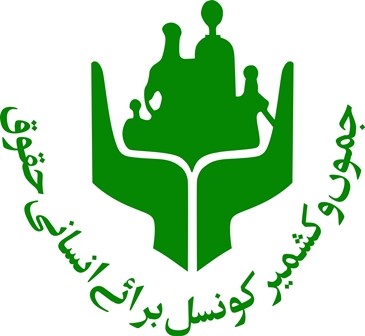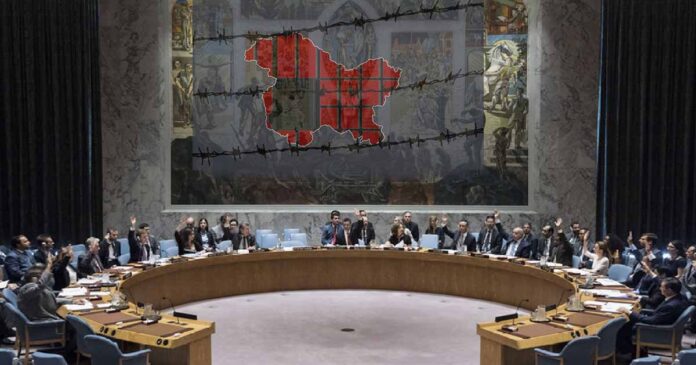
JKCHR – Jammu and Kashmir Council for Human Rights
NGO in Special Consultative Status with the ECOSOC of the United Nations
Established in 1984
“All human beings are born free and equal in dignity and rights.”
– Universal Declaration of Human Rights
Kashmir has been a source of conflict between Pakistan and India since 1947. The UN had an advising role in maintaining peace and order in the Kashmir region. The 1948 UN resolution on Kashmir established an effective procedure for the two countries to resolve the conflict, but it was never implemented. Since then, many agreements and negotiations have been carried out by the two countries and as well as through the intervention of third parties, mostly the UN, to pave the road for peace, but all attempts have failed to produce a result. To this day, the UN framework on Kashmir is the major source for dealing with the situation. To be safe, the Pakistani government should carry out its operations and align its affairs with the original UN framework. The Pakistani government bears a great deal of responsibility for adhering to the UN framework on Kashmir. Whether it is the country’s military or its politics, they must ensure that the UN framework is followed. A letter addressed to the Pakistan’s Prime Minister by the London-based Jammu and Kashmir Council on Human Rights encapsulates these concerns and reminds the PM of his responsibilities vis a vis Kashmir.
Below is the letter in full text, written on 26 July, 2022:
Dear Prime Minister,
Subject: 15th Amendment and Alignment of Relations with the Government of the State of Azad Jammu and Kashmir
This is in furtherance to my letter dated 18 July 2022 addressed to Mr. Qamar Zaman Kaira Advisor to Prime Minister onKashmir Affairs in regards to MKA letter of 1st July 2022 addressed to chief secretary of AJ&K, forwarded through the High Commission of Pakistan in London.
Government of Pakistan would be represented on the 6-member sub-committee by Ministries of Law and Justice, Defence and Kashmir Affairs & Gilgit-Baltistan. Unfortunately Governments of AJ&K has not worked as provided in Karachi Agreement of 1949, Act 1970, Act 1974 or in the AJ&K High Court judgment of April 1999 (on JKCHR Petition of December 1992) to institutionalise work on the UN template on Kashmir.
AJ&K Government has not developed any institutional discipline to assist the Government of Pakistan in the “alignment” of relations. Therefore, GOP has a higher burden of responsibility to ensure that it does not hurt the UN template on Kashmir.
We can partly blame the Governments of AJ&K for this dereliction of duty to Kashmir cause. Kashmir has remained an intra-agency subject. The confusion about, who carries the burden of the assumed duties under UNCIP Resolutions remains at the heart of our misdirected efforts. It has resulted in the ill adjustment of our compass on the Rights Movement of the People of Jammu and Kashmir.
Pakistan would be represented by the Ministry of Defence on this sub-committee and the military component on the sub-committee should have a reliable understanding of the UN template on Kashmir, in particular, the four components of the case.
I want to flag it for the attention of military experts and experts in the intra-agency discipline, who retain a massive interest in the affairs of Kashmir that their representation should not fail to consider that world’s most leading Generals have contributed to the jurisprudence of UN template on Kashmir. The UN Secretary-General Dag Hammarskjöld was accompanied by leading military experts when he visited Srinagar in March 1959, to assess the economic and political conditions of the people.
The British delegation to the UN Security Council during the debates on Kashmir was headed by Philip J. Noel-Baker. He had helped to draft the Charter of the UN at San Francisco. British delegation had two eminent military advisors, namely General Lord Ismay and General Schemes to help it during the debates. Lord Ismay had remained Winston Churchill’s chief military assistant during the Second World War. General Schemes had commanded in Burma during WWII.
The role of these two eminent WWII Generals during the debates on Kashmir is explained to the UN SC by the head of British delegation at the 235th meeting of the UNSC held on 24 January 1948 (S/Agenda 235). Britain ensured a balance between Political Science and Military Science during the debates on Kashmir.
The other leading General who, chaired the UN SC meetings during the debates on Kashmir, played a lead role in seeking agreements between Indian and Pakistan, and contributed in constructing the UN template on Kashmir is, General Andrew McNaughton. He was General Officer Commanding-in-Chief First Canadian Army after WWII and headed the Canadian delegation at UN SC.
Chester William Nimitz a fleet admiral of the United States Navy, who had commanded Allied air, land, and sea forces during World War II was designated by the UN as Plebiscite Administrator for Kashmir and was formally appointed in the position by the Government of Jammu and Kashmir, under the UN template on Kashmir. He had hard started working on the Electoral Register and had a schedule to conduct a Plebiscite by 01 November 1950. World famous generals have been leading the UNMOGOP on either side of CFL since 1949.
Under UNCIP Resolutions, Azad Kashmir is a local authority. Therefore the temporary alignment of relationship with GOP has to honour the UNCIP test. The future test is a negotiated relationship under Article 257. The 15th amendment in its present shape and the manner of advice given to chief secretary AJ&K to forward three names for the 6-member sub-committee is likely to disturb the UN template and violate the caution given in UN SC Resolution 91 of 30 March 1951. The scope of the advice would be regarded a colonial ride and would severely hurt the Kashmir case.
It would be unfortunate and equally dangerous if we reduce the merits of UN template on Kashmir to the consideration of a 6-member sub-committee of the manner proposed in the letter of 01.07.2022. The military and intra-agency component in charge of Kashmir subject has a higher burden of responsibility. Any casual and careless attitude could have serious consequences and hurt the Kashmir cause and the interests of Government of Pakistan beyond repair.
The present alignment should be on the basis that AJ&K is a Local Authority and the final alignment would be negotiated as provided under article 257 of the constitution of Pakistan. JKCHR remains in full support of the UN template on Kashmir and continues to advocate the 4-components of Kashmir case. We fully support the MOTION Tabled by Raja Farooq Haider Khan (ex-Prime Minister) MLA on 20 July 2022 in the AJ&K Assembly.
Prime Minister kindly rest assured of our best regards.
Yours Sincerely

Dr. Syed Nazir Gilani
President-JKCHR
Through the High Commission of Pakistan in London
HE Moazzam Ahmed Khan
High Commissioner
Pakistan High Commission
34-36 Lowndes Square, Belgravia
London SW1X 9JN
CC
- Foreign Minister of Pakistan
- Advisor on Kashmir Affairs
- Chief of Army Staff
- Prime Minister of AJ&K
- Leader of the Opposition AJ&K Assembly
- Raja Farooq Haider Khan (ex-Prime Minister) MLA (Ref: Your Motion of 20 July 2022).
- Chief Secretary AJ&K
191 Primrose Lane, Surrey, London CR0 8YQ (UK)
t: +44 2033 711 202 f: +44 2084 329 503
e: info@jkchr.com www.jkchr.com WhatsApp: 00 44 771 48 46 431
JKCHR – Case Postale 39, 1211 Genève 17, Switzerland t: +41 754 171 874




